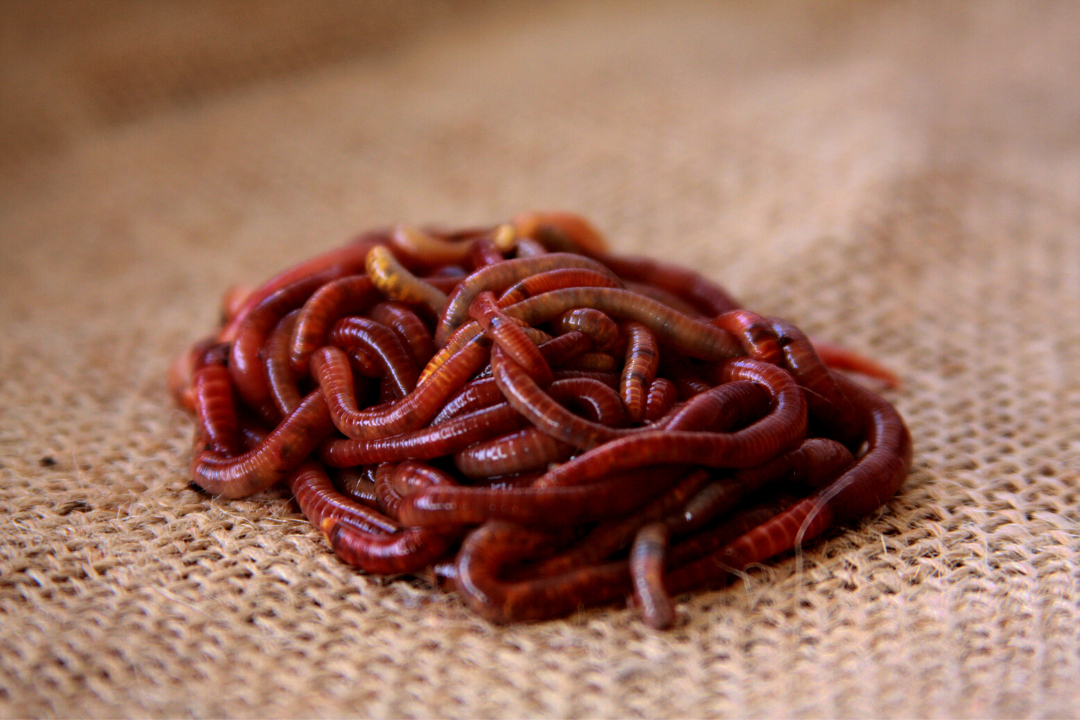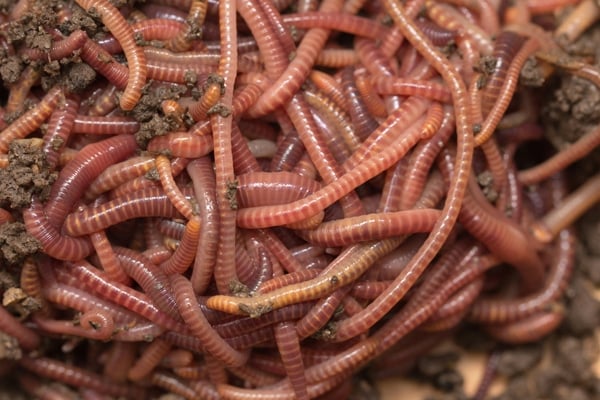The Incredible Globe of Red Wigglers: Increase Your Soil Fertility Today
The role of red wigglers, or Eisenia fetida, in boosting soil fertility is a subject of growing interest amongst gardeners and agricultural specialists. These tiny yet reliable microorganisms change natural waste right into useful worm spreadings, considerably enhancing soil wellness and advertising lasting methods. As we check out the advantages of vermicomposting and the sensible actions to develop a reliable worm container, the prospective influence of these worms on your gardening success ends up being significantly apparent. Recognizing the nuances of their treatment and application may simply alter the method you come close to dirt management. What understandings can be gained from incorporating these remarkable creatures right into your gardening regimen?
Recognizing Red Wigglers
Red wigglers, scientifically known as Eisenia fetida, are a varieties of earthworm that play a critical function in enhancing dirt fertility. These worms prosper in organic-rich atmospheres, such as compost piles and decaying plant product, where they consume natural waste and excrete nutrient-dense castings. Their unique makeup, including a segmented body and a clitellum, allows them to recreate rapidly and efficiently procedure big amounts of natural issue.

The eco-friendly importance of red wigglers extends past plain waste handling; they contribute to the soil food internet, fostering a diverse community of microbes that better enhance dirt health. Recognizing the biology and actions of red wigglers is vital for using their full possibility in sustainable farming and horticulture methods.
Benefits of Vermicomposting
(Red Wiggler Express)Harnessing the power of red wigglers through vermicomposting offers various advantages that substantially boost dirt health and wellness and fertility. Among the primary advantages is the production of nutrient-rich worm spreadings, which are an excellent natural fertilizer. Red Wiggler Express. These castings include crucial nutrients like nitrogen, phosphorus, and potassium, advertising durable plant development and boosting crop returns
The existence of worm spreadings enhances soil texture, allowing for far better water retention and drainage. Red wigglers assist break down organic issue, accelerating decomposition and recycling nutrients back into the soil.
Vermicomposting additionally cultivates microbial task, which is important for a healthy soil environment. Beneficial bacteria prosper in the presence of worm castings, assisting in the malfunction of organic products and enhancing nutrient schedule to plants.
Lastly, vermicomposting works as an efficient waste administration solution, minimizing landfill waste by reusing cooking area scraps and various other natural products. This not only contributes to environmental sustainability but also promotes a round economy within horticulture and agriculture.
Exactly How to Establish a Worm Bin
Establishing a worm container is a straightforward process that can substantially enhance your composting initiatives. Begin by choosing a proper container, which can vary from a commercially offered worm bin to an easy plastic or wood box (Red Wiggler Express). Guarantee the container has appropriate air flow; small holes in the cover and sides will help with air circulation
Next, create a bedding layer to give a comfy setting for the red wigglers. This can be made from shredded paper, cardboard, Visit This Link or coconut coir, dampened to a wet, sponge-like consistency. Fill up the container to around one-third full with this bedding product.
As soon as the bedding is prepared, it's time to present the worms. Red wigglers prosper in natural waste, so area them gently onto the bed linens. Cover the worms with a light layer of extra bedding to aid them accustom.
Feeding Your Red Wigglers
Supplying the appropriate food for your red wigglers is essential for their health and wellness and the performance of your composting system. Red wigglers flourish on a diverse diet, largely including natural materials such as vegetables and fruit scraps, coffee premises, and shredded paper. These products not just provide vital nutrients but additionally add to the microbial activity in the worm bin, which is critical for the worms' digestion.
It is very important to prevent certain foods, such as dairy items, oils, and meats, as these can draw in parasites and develop undesirable smells. Furthermore, citrus peels and extremely hot foods ought to be restricted as a result of their potential to harm the worms. A balanced strategy to feeding includes keeping track of the quantity of food presented to the container, ensuring that it is consumed within a practical period to stop excess waste accumulation.
To promote optimum food digestion, it is helpful to slice or shred bigger food things before adding them to the bin. This technique boosts the surface area for microbial activity, facilitating quicker decay and enhancing the overall efficiency of your composting system. Regularly observing the worms' feeding behaviors will aid you change their diet plan as required.
Making Use Of Worm Castings in Your Garden

(Lake Rhodhiss Bait)Integrating worm spreadings into your garden can be completed by blending them into the dirt or utilizing them as a leading dressing. The slow-release nature of these spreadings makes sure that nutrients are offered to plants over an extended period, decreasing the need for artificial fertilizers. Furthermore, worm castings include beneficial microorganisms that advertise healthy soil ecosystems, enhancing the total resilience of your garden.
To optimize the benefits, purpose to use approximately one part worm spreadings to 3 components soil in your planting beds. Regular applications can lead to enhanced crop yields and much healthier plants, making worm castings an invaluable source for both amateur and skilled gardeners alike. By utilizing this all-natural change, you can cultivate a thriving garden while adding to lasting horticulture practices.
Final Thought
Finally, red wigglers exemplify the important function of vermicomposting in improving dirt fertility. Their capacity to transform organic waste into nutrient-rich castings significantly enriches soil structure and supports microbial variety. Establishing a vermicomposting system not just advertises lasting gardening methods but additionally adds to eco-friendly wellness. By leveraging the advantages of these amazing microorganisms, gardeners can grow much more efficient and resilient communities, ultimately fostering a much more sustainable method to agriculture and cultivation.